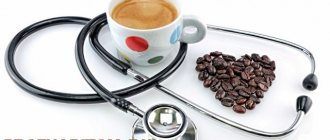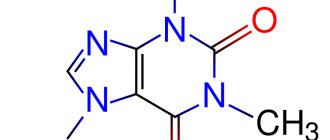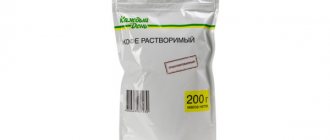Morning coffee works wonders: it makes you finally wake up, concentrate and get ready for work. But lunch time comes - and an invigorating drink again helps to cope with the inevitable drowsiness with which the body reacts to an overly rich dish.
If this ritual is repeated from year to year, then over time a person notices that the usual portion of coffee no longer works, and it has to be increased. The number of cups of coffee consumed per day is steadily increasing. The body reacts to the lack of caffeine with headaches, nervousness, and sometimes poor coordination of movements.
This is how caffeine addiction is formed. Let's try to figure out why it appears and how to cope with this problem.
The benefits and harms of coffee
The World Health Organization certainly does not ban coffee, and even promotes its consumption in moderation.
The effect of its use is familiar to all of us - vigor, activity and good mood throughout the day.
Coffee quickly returns activity to the brain, allowing you to almost instantly “get involved” in the mental process, and according to some researchers, it helps to avoid the development of Alzheimer’s disease.
At the same time, coffee is not good for everyone.
There are a number of diseases for which it is better to abstain from this drink.
This applies primarily to people with cardiovascular diseases, such as hypertension and heart failure.
Important! The National Institute of Medicine recommends consuming no more than 400 mg of caffeine per day.
This is approximately 4 coffee cups or 250 ml of aromatic drink.
By the way, the same amount of drink is contained in 10 cans
Coca-Cola or 2 cans of energy drink.
But true coffee lovers ignore these recommendations!
According to reviews, many people drink 5, 10, or even 15 cups of coffee a day and claim that they feel great!
Is it really? Let's figure it out.
The symptoms of coffee addiction are as follows:
- Coffee is consumed much more often than usual (the norm is the aforementioned 2 cups per day, although, again, everything is individual), in large quantities and for a long time. Simply put, taking it in abundance becomes a habit;
- concentration is impaired, it becomes difficult to concentrate on a task, even the most basic, difficulties arise with setting priorities;
- apathy and chronic fatigue are felt;
- causeless anxiety may arise, and behavior against this background becomes hyperactive;
- tremors in the limbs and photophobia are manifested. Thoughts are confused, speech is pronounced faster than usual, may be inconsistent, abrupt;
- depression appears and develops, which, as a rule, is accompanied by stereotypy - a pathological craving for repeated repetition of “honed”, habitual actions (such as lining up pencils in a clearly defined sequence or frequently shaking off non-existent crumbs);
- With all the problems listed above, it is impossible to part with caffeine - the drink, which provokes physical and mental deterioration, is consumed again and again. The process cannot be controlled; drinking coffee no longer brings the former pleasure, does not supply the required energy, but becomes only a means of satisfying the need.
Caffeine addiction: 8 signs
Let's say right away that in addition to coffee, a person can get caffeine from other food products.
These are, first of all, energy drinks, isotonic (sports) drinks, chocolates and cakes, green tea and even some medications!
The consumption of such products, in combination with excessive absorption of coffee, can threaten our body with a variety of troubles, which manifest themselves with the following characteristic signs:
If you decide to overcome addiction
We get used to coffee only after we start drinking large doses of this drink for quite a long time. You won't become a coffee lover if you drink 3-4 cups a day. Doctors consider this dose safe. If you drink more, there is reason to think about it. First, it’s worth determining what exactly you depend on - the aromatic coffee itself or the caffeine it contains. If you stop drinking coffee but increase your intake of tea and chocolate, your body will continue to receive caffeine. It is also found in carbonated sweet drinks, such as Pepsi and Coca-Cola.
For many, a cup of coffee becomes a kind of ritual, a habit developed over the years. Getting their next dose of caffeine is not as important to them as simply doing some coffee-related activities. They like to grind grains into aromatic powder, pour it into a pot or coffee maker, brew an invigorating drink, and then happily drink a cup or two. This is more of a psychological habit than a truly physiological addiction. Many people like to drink espresso, Americano or cappuccino at a coffee shop. It’s cozy there, you can sit with friends and have a nice conversation while sipping a fragrant drink. Some people drink it for company, at work or on vacation with friends.
To successfully get rid of caffeine addiction, you need to understand why you need it.
If you really understand that addiction has appeared and want to get rid of it, it is important to build a competent and effective strategy of behavior. It will consist of the following important steps:
- Drink less drinks and foods that contain caffeine.
- Reduce your coffee consumption by about half.
- You can replace coffee with tea, preferably green.
- Avoid chocolate, carbonated drinks and strong black tea.
- Try replacing coffee with a decaf version. After a month, you can try to give it up too. Replace it with green tea, berry infusions, and herbal infusions.
If you realize that you are addicted not so much to caffeine as to the coffee ritual, then the strategy will be slightly different:
- First, change your usual diet. New eating habits will help you renew the drinks you prefer to drink. Replace coffee with green tea, rosehip infusion or other aromatic drinks. You can choose delicious herbal tea.
- Try to change the coffee shop to a cafe or restaurant.
- You may need to change the company you dine with, for example. Sometimes a change of environment is enough to soon forget about coffee addiction.
Lethargy and fatigue during the day
In a normal state, the human body endures daily stress and should not experience lethargy and apathy almost until sunset.
A cup of aromatic coffee in the morning only helps you feel great throughout the day.
But if by lunchtime you feel tired and exhausted, and when you return from work you simply collapse, then the problem is due to excess coffee consumption.
You can also pay attention to the following feature.
If in the afternoon you cannot come to your senses without a couple of cups of your favorite drink, then you have a caffeine addiction.
Harm of caffeine
Caffeine is harmful or beneficial depending on the dose. A cup of an invigorating drink every few days will not make you a coffee addict and will even help raise your blood pressure and improve your body tone on a particularly cloudy day. But constant consumption of caffeine leads to dangerous consequences. A disrupted routine and impaired metabolism are not the worst things that await addicts.
Negative consequences do not bypass the intestines. Diarrhea is one of the side effects of excessive coffee consumption. Addicts experience dehydration due to the strong diuretic effect of caffeine, dry skin, and a painful feeling of thirst.
In the USA, doctors recommend excluding coffee from the diet of pregnant women so as not to harm the health of the unborn child. Researchers around the world talk about the negative impact of excessive caffeine consumption on the bladder, including the development of malignant tumors. Dependence on an invigorating drink sometimes goes beyond what is acceptable, and then a person faces a dangerous state of caffeine intoxication.
Urine that is too yellow or orange
The appearance of urine of an uncharacteristic color, for example, too dark, brown or even brown, clearly hints at dehydration of the body.
This can happen for various reasons, but if you can’t stand even a couple of hours without coffee, you should limit your drink consumption.
Observations show that people who limit themselves to 2-3 cups of coffee a day are not bothered by this problem.
How to deal with addiction
Dependence on caffeine-containing drinks is usually mild and goes away on its own. To quit caffeine if your symptoms are severe, you should:
- Don't give up coffee abruptly. To eliminate withdrawal symptoms, it is necessary to reduce the number of drinks taken and their volumes gradually.
- Find an interesting activity that will allow you to switch from the habit of drinking coffee in your free time.
- Replace coffee with other caffeinated drinks. This could be tea or its decaffeinated analogue - chicory.
- Eat properly. A diet rich in vitamins and minerals stabilizes the functions of the nervous system and helps normalize mood. Proper nutrition also improves metabolism, which can also reduce the severity of withdrawal symptoms.
- Drink more pure water, which speeds up the removal of caffeine from the body, which helps to cope with addiction faster.
- Rest and sleep more. A sufficient amount of sleep eliminates the appearance of drowsiness and fatigue, to eliminate which you need to drink coffee.
- Exercise. Physical activity not only improves metabolism, but also improves your mood.
Caffeine addiction = increased anxiety
If you begin to notice increased nervousness and excitement, even over trifles, if others begin to pay attention to your causeless aggression, then the problem is not far-fetched.
Other obvious symptoms can also serve as confirmation: sweaty palms, frequent dizziness, headaches and heart rhythm disturbances.
There can be many reasons for this condition, from hormonal imbalance to a lack of vitamins and minerals, such as magnesium or potassium.
The examinations do not confirm any serious problems in the body? It's all about coffee passion!
It turns out that caffeine in excess dosage stimulates the adrenal glands, releasing adrenaline and other neurotransmitters that provoke stress.
And if in a healthy person these changes are barely noticeable, then in a person under the influence of low-grade stress or suffering from depression, an excess of coffee is noticeable to the naked eye.
The dangers of coffee addiction
The symptoms of coffee mania are only minor negative aspects of this habit. Abuse of the drink for a long time causes severe damage to health, leading to disruption of the functioning of the organ and systems. The main danger of coffee is the following:
- Coffee provokes high production of cortisol, which is responsible for stress. As a result, hormonal dysfunction develops. As a result, the level of an important hormone that is necessary for a healthy pregnancy decreases. Testosterone also decreases, so men have problems with sex life.
- The functioning of the thyroid gland is seriously impaired. Metabolism worsens, so people often face excess weight, which is deposited throughout the body.
- Immune status worsens. As a result, coffee lovers are often exposed to various infectious and colds.
In addition to the listed conditions, the harm of coffee also lies in its increased effect on the nervous system. This leads to anxiety, irritability, poor sleep and chronic fatigue. Among other things, certain centers of the brain are inhibited, therefore the synthesis of serotonin is suppressed. Because of this, a person is often in a state of stress and bad mood.
Liver dysfunction is also an important negative complication due to uncontrolled caffeine intake. Due to the large consumption of the drink, the liver begins to function at a high level, so its full functioning is disrupted. She is unable to cleanse the body of harmful substances.
Sleep problems
People addicted to coffee often claim that they drink their favorite drink even at night, and sleep well afterwards.
It’s just a rare person who makes such a claim, goes to bed before midnight, and sleeps no more than 5-6 hours a day. At 22:00 he simply cannot force himself to fall asleep!
In fact, a cup of coffee interrupts sleep for about 30-40 minutes until the caffeine is absorbed by the body, and therefore you should stop drinking this drink at least an hour before going to bed.
If you give up coffee in the afternoon, literally in 1-2 weeks you will be able to train yourself to fall asleep at 22:00. Moreover, you will sleep 8 hours without waking up and nighttime insomnia!
Important! When talking about avoiding coffee in the afternoon, you need to keep in mind that other caffeine-containing drinks, such as energy drinks or green tea, should also be prohibited.
Coffee tolerance
Still, if you feel like you've been drinking too much coffee lately or that it's no longer energizing for you, it might be time to take a break.
The scientific explanation for this need to be separated from coffee is tolerance. But not the one that has become fashionable to talk about on TV. Caffeine tolerance is a decrease in the effectiveness of its effects on your body. In other words, it’s addictive. When a drink no longer invigorates as before, does not provide additional energy, and simply does not make you happy.
You can choose coffee with up to 50% discount here>>
The culprits are adenosine receptors in the brain. They are responsible for the change in states of sleep and wakefulness. Caffeine blocks them, thereby increasing our alertness. But a wise organism is accustomed to looking for balance in everything. And the more often we drink tea, coffee or caffeine-containing drinks, the more of these receptors appear in the brain. This is why the expected effect does not occur after the usual cup of coffee: caffeine simply cannot block all receptors. This process can be endless: that is, as you add more and more caffeine to your diet, you will stimulate more and more production of adenosine receptors. And this is no longer safe for health.
Dry mouth and heartburn
Heartburn is one of the obvious symptoms of problems with the gastrointestinal tract.
This could be dyspepsia, gastritis, or even peptic ulcer.
But if you don’t have such problems, and dry mouth, sour taste and heartburn bother you every day, it’s probably a caffeine addiction.
Conduct an experiment: just give up your favorite drink for just a couple of weeks and listen to your body.
You will be surprised, but attacks of heartburn, dryness and the feeling of a “stone” in the throat will completely go away!
If so, then the cause of your malaise was really hidden in your passion for coffee.
Do they drink coffee in Kazakhstan, and how is our coffee market developing?
Informburo.kz talked about coffee and the coffee market of our country with those who have been working with coffee for many years: Ravil Nurdinov and Alikhan Rysbaev.
Ravil Nurdinov is a chef barista and trainer at Probarista.kz, a company that roasts coffee, teaches the barista profession, helps set up service and open coffee shops.
Alikhan Rysbaev is a chef barista, winner of the Kazakhstan Barista Championship in 2014 and a trainer at Serikov Coffee Company - this is the first company in Kazakhstan to roast its own coffee. The company also trains baristas and helps open coffee shops.
Do people in Kazakhstan drink a lot of coffee, or is it much inferior to tea?
Alikhan Rysbaev: I think that tea was simply the first to come to our market, so people drink it more. It is quite possible that in a couple of years more coffee will be drunk. Moreover, there are all the conditions for this: over the past few years, the coffee market in Kazakhstan has been growing and developing. This can be seen in the number of coffee shops that open every year. The fact that Starbucks came to the Kazakhstan market is a clear confirmation of this. And not only is coffee consumption increasing, people are also becoming more aware.
Ravil Nurdinov: Mentality, of course, influences. Well, what kind of coffee experience do most people in the post-Soviet space have? For the older generation, this is Indian coffee in an iron can. Well, in general, this experience is more related to instant coffee. You try coffee, and it’s something bitter, incomprehensible and tasteless. Hence the understanding that coffee needs to be diluted with milk and added sugar. But today, for many, it’s normal to walk down the street with a glass and drink coffee. The market is growing. In my experience, most coffee is drunk in Almaty, followed by Astana, which is logical. Now many companies are considering Shymkent, the third most populous city. Despite the fact that this is a southern city where traditions are strong, I think that many people there will be happy to drink good coffee.
Is anything significant happening on the coffee market in Kazakhstan?
Alikhan Rysbaev: Yes. In 2021, the Specialty Coffee Association (SCA, specialty is a category of high-quality coffee, it accounts for no more than 20% of the total volume of the global coffee market. - Author) appeared in Kazakhstan. This is a very significant event, because the winner of the championship in Kazakhstan will be able to represent our country at the world championship. Most likely, there will be 3 championships with access to the world: in Aeropress (an alternative brewing method), “Coffee and Alcohol” (coffee drinks with alcohol) and latte art (painting with milk on coffee).
Ravil Nurdinov: The coffee industry has not only received a big leap in the last few years. Of course, the big good news is that Kazakhstan joined the SCA last year. This is the organization that holds all world championships. And just recently our branch received a license to hold championships. The championships will have access to the world: Kazakhstan has a chance to declare itself as a coffee country. The fact that we only drink tea is becoming a stereotype; our market has developed significantly in terms of volume. There are many companies that roast their own coffee. Championships, training, opening new coffee shops with high-quality Arabica beans. Many companies are engaged in educating and developing guests, telling stories and sharing knowledge.
What coffee drinks are preferred in Kazakhstan?
Alikhan Rysbaev: Dairy drinks have always been sales leaders. This is precisely due to the understanding that coffee is something bitter and needs to be diluted. In general, the top sales in any coffee shop are three drinks: latte, cappuccino and Americano, in that order.
Ravil Nurdinov: Of course, dairy drinks. Classic and original. When I first started working with coffee, I was assigned to brew “alternatives” (methods of brewing coffee by hand to maximize the flavor - author). It seemed to me that there was nothing tastier. I offered it to the guests, they tried it and said: “Well, okay, can I add milk?” When I began to gain experience in the hospitality industry, I realized my mistake. Still, you have to come to black coffee; not everyone is ready to drink it. Sometimes it happens like this: for example, we offer some kind of signature drink, it can be milky, but with an interesting combination of flavors - the same “Lavender Rough”. The guest tries it and usually likes it. This is the first step in the contact between the barista and the guest. After some time, signature drinks usually get boring. The second step between the barista and the guest: classic dairy drinks, such as cappuccino or sugar-free latte. This is not easy, because initially people are determined that the drink will be bitter. Many people add sugar on a subconscious level. There are such technological features of preparation: heat the milk to 70 degrees, whisk it properly and pour it in. Then the milk gives off its natural sweetness, resulting in a very gentle and pleasant drink that does not require sugar. The guest tries it and is surprised: “Listen, why is this so? This is where I get a cappuccino; it’s impossible to drink it there without sugar. But you have a completely different taste.” Then we explain that our grain is freshly roasted and of high quality, and that this is due to the correct preparation of the drink. After this, guests gain trust and the first understanding that coffee is not necessarily bitter. After this, it happens that people try espresso, and then an alternative. Or they return to dairy drinks, but with a new taste experience. In this regard, I would like to appeal to the barista: do not be shy and do not be afraid of your guests, love them and communicate with them. Ultimately, our job is not to promote black coffee and change guests. Our task is to brew a delicious cup for the guest, and it doesn’t matter whether it’s an “alternative” or coffee with milk.
Digestive problems
Some people believe that coffee helps them lose weight, because a cup of their favorite drink acts like a laxative on their body.
In fact, drinking coffee is not a way to get rid of extra pounds.
Coffee is quite capable of creating problems for the stomach and intestines.
Once in the stomach, caffeine promotes the production of the hormone gastrin, which increases the activity of the colon and creates a laxative effect.
Some people may even develop diarrhea or unexplained abdominal pain.
If there are no other prerequisites for the appearance of loose stools, you may want to think about limiting your coffee intake.
Measures to combat coffee mania
To overcome caffeine addiction, you will have to show considerable willpower: the body will begin to demand the usual dose, reacting to the restrictions with a deterioration in well-being and a depressed mood. The “perestroika” lasts about 4 weeks and can be relatively painless if the following approach is followed:
- In the first week, the frequency of “coffee libations” is reduced to once a day. In this case, the portion of coffee powder is cut exactly in half, that is, the drink becomes much less rich. Cocoa, leaf herbal and green tea are considered as replacements (bags are not suitable!). The latter, by the way, is also saturated with caffeine, but does not excite the nervous system so much.
- For the second week, all the same rules remain, only now the usual coffee portion is reduced by another third. The taste of the drink is, to put it mildly, so-so, but for the body it is better than nothing. It is advisable to spend the weekend without coffee gatherings at all, choosing strong green tea as a favorite. In case of a headache (a completely natural manifestation of withdrawal syndrome), it is permissible to take a cup of highly diluted coffee, but the next day will have to be spent exclusively on tea.
- By the third week, a clear realization should come: it’s quite possible to do without coffee. For the perseverance shown over the weekend (if there was no indulgence under the pretext of getting rid of a headache), on Monday you can reward yourself with a cup of your favorite coffee. Tuesday – again on green tea; on Wednesday, Friday and Sunday mornings you can and should start with coffee. This regime is intended to prove that even in the absence of coffee drinking, the body does not lose its performance.
- The fourth week should put the finishing touches on your relationship with coffee. You need to choose any one day when you can fully enjoy espresso, cappuccino or latte - drink slowly, savoring and prolonging the pleasure. When the cup is empty, you should say goodbye to the heavy dependence on the once irreplaceable drink forever. If you wish, you can drink decaffeinated coffee, but not regular coffee.
Vascular manifestations
To date, it has been proven that coffee itself should not provoke the development of hypertension.
However, if a person already has concomitant diseases, if he is overweight and has problems with blood vessels, drinking more than 2-3 cups of coffee a day, he may experience a headache, indicating high blood pressure.
Moreover, in a person with cardiovascular diseases, caffeine abuse can provoke ringing in the ears and the appearance of spots before the eyes.
What to do if you overdose on caffeine
People who lead a hectic lifestyle and have health problems are more susceptible to symptoms of caffeine overdose. If you feel unwell (for example, with a sharp increase in blood pressure, high heart rate and dizziness) due to excessive consumption of caffeine-containing drinks, you must provide first aid and call a doctor.
To avoid possible death, you need to know what to do if you overdose on caffeine. We also advise you not to neglect calling a doctor, since at first glance, a slight deterioration in health may be a signal of a serious disruption in the functioning of the cardiovascular system.
Treatment of caffeine overdose
If possible, have someone nearby and follow the guidelines for treating caffeine overdose until doctors arrive:
- loosen your tie and/or belt;
- loosen tight clothing;
- open a window or go out into the fresh air;
- drink clean water until completely saturated;
- do not hold back your gag reflex.
Further treatment of caffeine overdose will be carried out by doctors. If the current state of health upon examination raises concerns among physicians, treatment of caffeine overdose will need to be performed in a medical facility. It may include gastric lavage, intravenous administration of magnesium sulfate, diprazine and morphine hydrochloride, as well as drugs to reduce agitation and normalize the functioning of internal organs. In severe cases, plasma substitutes are used to treat caffeine overdose.
Rice. 2. The ratio of patients with pathology of the cardiovascular system per 100 thousand population in the Russian Federation (according to Rosstat).
Skin sensitivity and caffeine addiction
Your skin can tell you that you have become addicted to coffee.
In this state, she becomes too sensitive, and can become covered with red spots when exposed to any irritant, which has not happened to her before.
A person addicted to coffee begins to feel the cold more acutely and is more likely to break out in a cold sweat or fever.
We can say that under the influence of caffeine, a person’s thermoregulation process is disrupted.
You can also check this by giving up the drink for which you feel an irresistible craving.
If after 7-10 days the sensitivity of the skin decreases and the existing problems stop bothering you, then you have correctly identified the cause of the ailment.
Signs of coffee addiction
Obvious symptoms of coffee addiction are:
- Regular consumption of the drink throughout the day and daily is above the permissible limit.
- A disturbance in concentration appears, it is difficult for a person to engage in any activity, and it is impossible to set priorities in life.
- Depressed state, there is frequent apathy, fatigue and malaise in the morning.
- Groundless anxiety and restlessness are noted, behavior becomes hyperactive with sudden movements.
- There may be some tremors in the lower and upper extremities. As a result, thoughts become unclear, speech speeds up and its sequence is disrupted.
- A depressive state develops, which is accompanied by the repetition of certain movements many times.
- There is a strong craving for a coffee drink. A person cannot refuse a portion of the drug and drinks coffee uncontrollably in large quantities. Moreover, the drink no longer delivers positive emotions, but rather depresses your well-being.
Caffeine addiction: is coffee a drug?
Statistics say that about 30% of people have signs of caffeine addiction:
- Without coffee, the body simply refuses to work normally: there is no vigor, there is constant fatigue.
- Even with constant fatigue, insomnia torments.
- Increased anxiety, agitation and irritation.
- Sometimes dizziness and trembling in the hands.
- A drink is needed not to cheer up, but to simply feel good.
In the International Classification of Diseases (ICD), caffeine abuse is considered a mental illness, which falls under the heading “Mental and behavioral disorders caused by the use of other stimulants (including caffeine).”
According to the University of Melbourne (Australia), caffeine is the most common “psychoactive drug” in the world.
If you notice signs of caffeine addiction, you may be at risk.
What problems will you get rid of if you stop drinking coffee?
Let’s not scare you, this drink is healthy, because in addition to caffeine, there are a lot of fruit acids and more. The dosage itself and compliance with the measure are important. But if you stop using it completely, some problems will go away forever.
Dehydration.
Yes, coffee is also a diuretic, and a good one at that. This is good if there is an excess of fluid, but if everything is fine with the water balance, then why disturb it. Dehydration means dry skin and fine wrinkles, and this is the smallest nuisance. Together with the fluid, calcium and potassium also come out, and these are fragile bones with teeth plus a diseased heart. In addition, if you overuse Arabica coffee, minerals and vitamins are poorly absorbed. So, one cup of espresso inhibits the absorption of calcium for three hours. And three cups of espresso or Americano per day “kills” vitamins B and PP. They also reduce the absorption of potassium, zinc and iron.
Fertility.
Those wishing to have children should avoid coffee. The drink affects hormonal levels. So, when it is abused, the adrenal glands begin to intensively secrete the stress hormone – cortisol. This, in turn, leads to a lack of progesterone, which is responsible for conception and the actual development of pregnancy. Yes, it also affects pregnancy. If you drink 4 cups of espresso a day or more, there is a risk of miscarriage. Especially before 20 weeks.
Excess weight
For some reason, it is generally accepted that Arabica and Robusta help you lose weight. To some extent this is true. After all, it is known that this drink suppresses appetite, plus diuretic properties, plus it slightly accelerates metabolism. But there is a downside to coffee beans. The point again is cortisol, and the adrenal glands work in tandem with the thyroid gland. The thyroid gland is responsible for normal (or not so normal) weight. So if you want to lose weight, you can try giving up cappuccino. By the way, it also contains milk and sugar, which is also not good for your figure. Would you like an example? British housewife Lauren Olaflin gave up coffee and was able to lose almost 50 kg. She did nothing except give up Arabica coffee.
Insomnia
What can you do, if the drink affects the overall tone of the body, then it also affects falling asleep. It also negatively affects the quality of sleep. People who abuse Americano and espresso do not get enough sleep.
Decreased immunity
Again, the thyroid gland and adrenal glands are responsible for it, and coffee inhibits their activity.
Serotonin level
They say that coffee makes you happier, but this is not entirely true. It has a negative effect on neurotransmitters. So, if you suffer from depression, you should give up not only alcohol, but also Arabica and Robusta.
Decreased general tone
One day the coffee simply stops “working.” It’s just that the worn-out thyroid gland stops responding to it. You can, of course, increase the dosage of caffeine, but this will not help for very long.
Inferior sex life
Here again the thyroid gland makes itself felt. It also produces hormones that affect libido. And if you abuse an invigorating drink, it, as mentioned above, does not work as actively.
Pesticides
Coffee trees are very actively processed today. No, if you drink organic Arabica beans, it's not a big deal. But otherwise, just know that there are about a thousand chemicals in coffee.
Harm to the liver
This product is not absorbed very well, so the liver has to work, and work actively. Plus, it contains a lot of chemicals that the largest organ is forced to constantly neutralize. Give her a rest!










